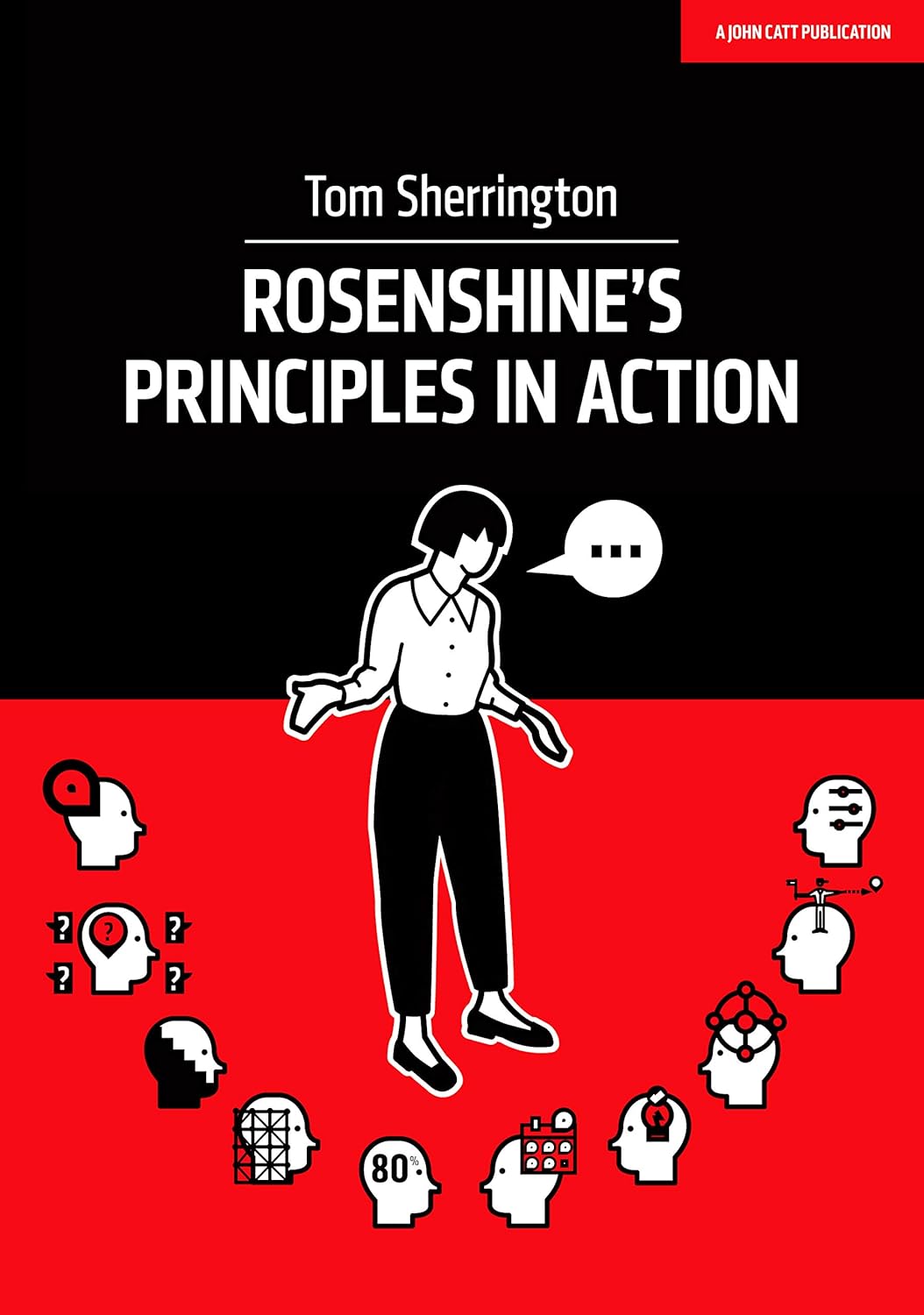About this deal
Smith, ‘Developing the performance brain: decision making under pressure’ ( Performance Psychology 2011, pp. In the second stage, Rosenshine offers advice on how the principle can be employed in the classroom. Worse still, it can be turned into a reductive ticklist of things to be completed, rather than a set of processes that flow through a learning sequence. I have a horror of SLTs that have already morphed this into a set of rules – expectations for every lesson, even to the point of them representing a linear sequence to form a lesson plan.
At the end of ‘Daily review’, Rosenshine offers an additional five recommendations for classroom practices, the final of which recommends that teachers should ‘Review material that needs overlearning (i. Yes, my views do tend to flit around, but the idea that declarative knowledge leads to procedural knowledge has always seemed a bit convenient/simplistic in all honesty. Do we all check for understanding in sufficient depth and responsively adapt our teaching accordingly.Instructional teaching is explicitly responsive – you adapt according the level of understanding and fluency students achieve. Sadly, this is where I can’t quite verbalise what I mean (and am not going the extra mile to study it more), so I stop talking about it! Objective: to get students to work effectively in pairs as a means of involving all students and generating more material to be explored in subsequent discussions. The master also supports the apprentice as they become independent at proficiently completing the task or engaging in the skill in question (Rosenshine, p.
These procedures are then described throughout the ten principles; they also serve as a useful synopsis of the guidance offered in Rosenshine’s article. I found it interesting to review these principles in relation to my practice as a materials developer (rather than teacher).Rosenshine’s principles are supported by a learning model from contemporary cognitive science, which Sherrington summarises as follows (Sherrington, pp.
They demonstrated by, for example, modelling successful answers or ways to complete tasks, by demonstrating how they should be done, and asking students questions. By contrast, Rosenshine argues that ‘less effective teachers’ often do not ‘provide enough worked examples’, which adds to cognitive load, leaves students unsure of procedures and how to apply them (Sherrington, p. The problem with it being a checklist is that, in unsophisticated hands, it becomes a list of ‘non-negotiables’ to be done in every lesson.In his ‘Principles of Instruction’, [1] Barak Rosenshine emphasises the importance of questioning in effective teaching and learning. Sherrington summarises this strand with the recommendation that teachers ask more questions to more students in more depth.
 Great Deal
Great Deal 